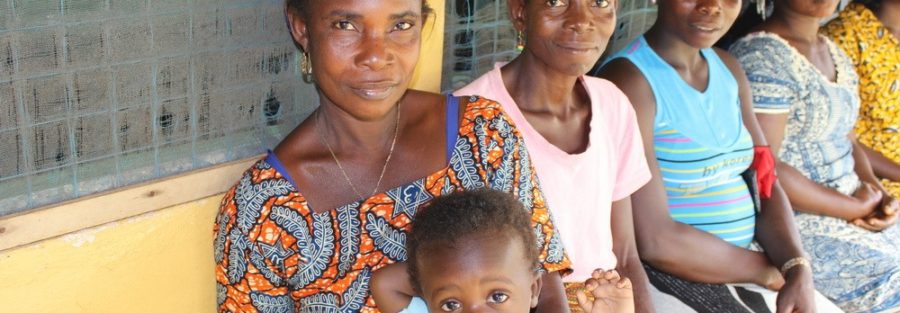Ghana’s Health Sector has had a gender policy since 2009 and both the NHIS and CHPS initiatives commit to improving maternal, child, adolescent, and reproductive health care. The National Health Insurance Scheme (NHIS) and Community Health Planning Services (CHPS) are two critical instruments in Ghana being used as a vehicle to achieve Universal health Care (UHC). While the NHIS is expected to ensure equitable universal access to a quality basic package of health services for all residents in Ghana without requiring them to pay out-of-pocket at the time of service consumption, the CHPS compounds are to improve coverage and utilization of basic health services for people in remote rural communities whose use of orthodox health services had previously been limited by distance.
However, too many women are excluded from NHIS due to the unfairly restrictive categorization; also, many women are required to pay processing or renewal fees for their insurance. NHIS does not cover out-of-pocket costs, contradicting the very essence of the policy; which is a critical consideration for women. Other issues at primary care level include access to cancer screening and geriatric care. There is evidence that women have different access to and use of health resources due to contextual factors such as finances, geography, time, information, and familial relationships.
While provision is made for women-focused services at these CHPS compounds, gender equity is not central to their delivery. As a result, women’s health service needs have been conceptualized as mainly reproductive health and family-planning related. Therefore, available services and delivery methods do not encourage women’s access to and utilization of CHPS and NHIS facilities sufficiently.
Despite specific women-friendly policy provisions, programme arrangements are not designed to respond to the realities of women’s mobility, time and material resources. In spite of service charters, lack of sensitivity and obligation in service providers’ attitudes has been reported in studies by ARHR and a consortium of Partners. Further, there is an absence of tailored responses to meet the needs of women in specific geographical areas. There are also lost opportunities in resource mobilization as potential partnerships between state and non-state parties are not utilized to deliver targeted and tailored Primary Health Care (PHC) Services.
Additionally, women’s health issues are also not addressed from a life-cycle perspective which would draw attention to the social and economic experiences that affect females at every stage of life – at the intrauterine, early childhood, adolescence, youth, early adulthood, middle age and old age stages.
Issues of policy inconsistencies and incoherence within and outside of the Ministry of Health also persist. For instance, the NHIS covers maternity-related expenses. However, there are policies, such as non-reimbursement of expenditures at the CHPS level, initiated by the Ghana Health Service (GHS) and Ghana Drugs Programme that works against free maternal health services.
Communication for improved accountability and participation is an essential component of the effort to provide equitable PHC. There are, however, few platforms and mechanisms for communicating policy provisions and obligations to key stakeholders and rights holders. As a result, many women and other vulnerable groups have limited access to knowledge about government policies and programmes and are unable to fully participate in and provide regular input to enhance service delivery at all levels.
Way Forward
Achieving systems change in PHC delivery by addressing the gender deficits in the delivery of CHPS and NHIS services is critical to attaining more gender equitable health outcomes. CHPS and NHIS are key levers in the health system and could bring about larger system shifts. Amongst other considerations, CHPS compounds are found all over the country, thus good practice changes could easily have cumulative effects country-wide. CHPS serve the most disadvantaged populations and could potentially help women and girls have access to a wider range of health services.
Again, improvements to NHIS would help to reduce out-of-pocket expenditure which would have knock-on positive effects on women’s health, including improved nutrition. The reform processes in these two areas will accelerate progress towards achieving sustainable and UHC in the context of realizing national commitments and key health targets.
Further, there is a need to build the capacity of women and girls to know and exercise their rights to basic services; improving access to quality and equitable service delivery through awareness creation; and participatory monitoring. Create platforms that will enable women and girls to participate effectively in productive and decision-making roles in their families and communities to enhance positive social norms and power relations within the family structure.
In summary, improved governance and management of CHPS and NHIS, through policy change and regional oversight; improved service delivery and enhanced positive social norms and power relations, are required to achieve the goal of mainstreaming gender equity considerations in improving accessibility, affordability, and quality of NHIS and CHPS facilities and ensure improved health outcomes for women and girls.



